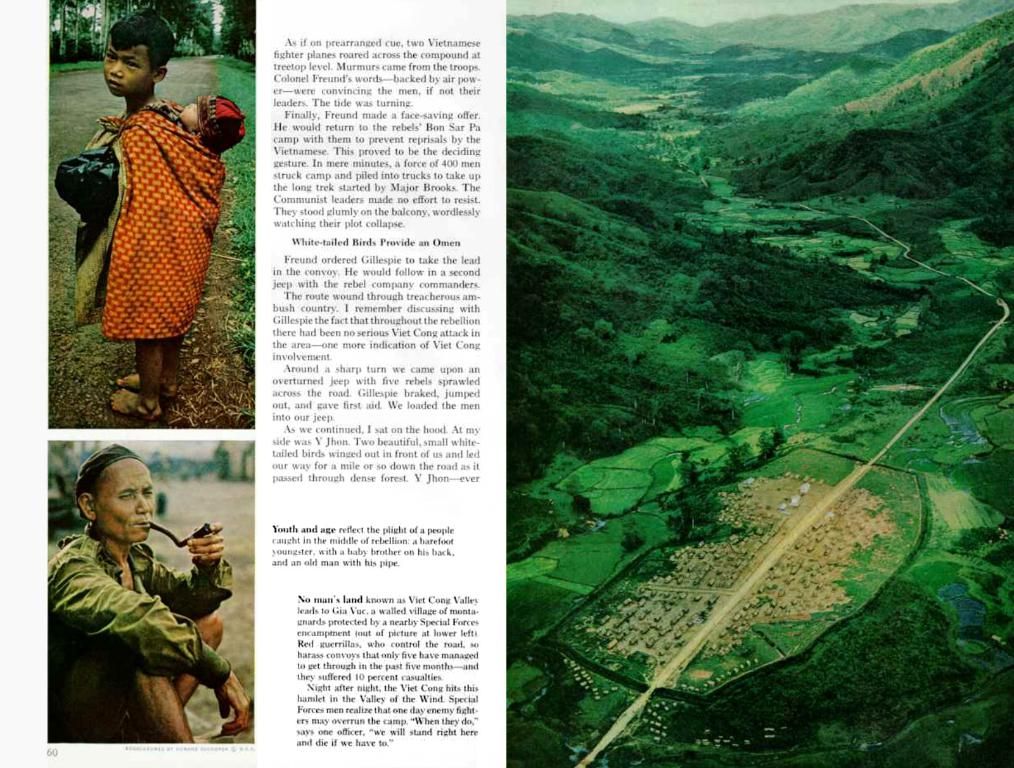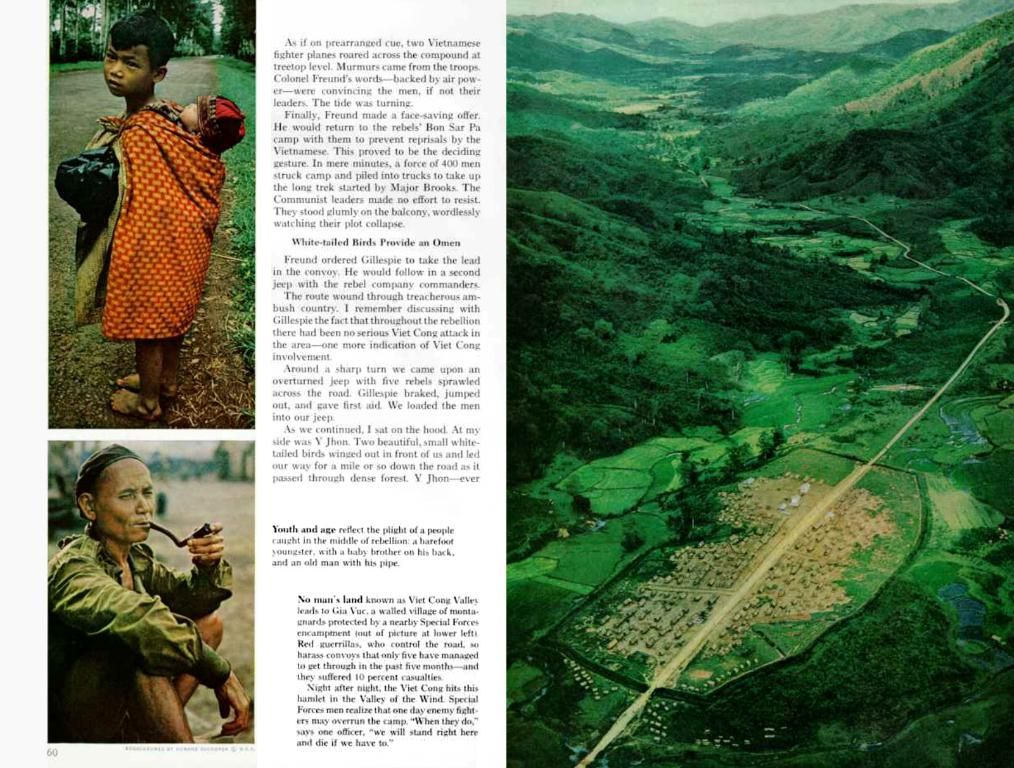Macau Launches Major Billion-Dollar Projects to Diversify Economy: Here's the Lowdown
Macau seeks to diminish gambling dependency issues
In a bid to minimize its economic reliance on gambling, Macau's leader, Sam Hou Fai, has announced an investment of 4.2 billion EUR across four significant infrastructure projects. With gaming accounting for approximately 80% of tax revenues, these initiatives are much-needed to secure a sustainable future for the Chinese special administrative region.
Diamond in the Rough: Macau - A Special Region with Special Rights
Since its takeover from Portugal in 1999, Macau has been one of the Special Administrative Regions (SAR) of the People's Republic of China, sharing similarities with Hong Kong. Under the "One Country, Two Systems" principle, it boasts its own legal system, currency (Pataca), distinct customs and tax policies, extensive economic and political autonomy, and the freedom to conclude international agreements independently. As a bridge between China and the West, it plays a crucial role within the Greater Bay Area, enjoying special privileges, such as duty-free status as a free port or the unique regulations of the Hengqin cooperation zone.
The Four €4 Billion Projects: A Long-Term Strategy for Economic Diversification
These ambitious projects, unveiled at a media event, are part of a long-standing strategy to promote "moderate economic diversification." The total expenditure for the projects is estimated to be around 38.2 billion Pataca/MOP (4.2 billion EUR).
Brainpower Uptown: Macau-Hengqin International Education City
The marquee project is the development of the Macau-Hengqin International Education City, expected to cost almost 200 billion MOP (22 billion EUR). The new campus of the University of Macau is already under construction and is slated to open in 2028. Further expansion will include the University of Tourism. Situated in the Hengqin cooperation zone, the primary aim of the complex is to cultivate education specialists specifically for tourism, leisure, and international collaboration.
Culture and Cuisine Galore: International Cultural and Tourism Quarter
Slotted for development between the Macau Peninsula and Taipa, the planned International Cultural and Tourism Quarter will receive a budget of 120 billion MOP (approximately 13.2 billion EUR). The district's focal point will be a National Museum, an international performing arts center, and a museum for modern art. Details indicate that the construction period will be 2 to 3 years. The hope is for Macau to become a leading cultural hub in Asia and create international interest in China's cultural heritage.
Takeoff and Liftoff: Macau International Airport Expansion
Plans for expanding the Macau International Airport are underway, with acquisitions of 60 billion MOP (6.6 billion EUR) set aside for the project. Preliminary work has commenced, with the aim of making Macau an international aviation hub on the western bank of the Pearl River. By improving connectivity and capacity, the airport expansion intends to strengthen ties with the Zhuhai Jinwan Airport, fostering logistics and transport solutions for cross-border e-commerce and the high-tech industry in the Greater Bay Area.
Innovation Nation: Macau Technology R&D Industrial Park
The upcoming Technology R&D Industrial Park is designed to lure research centers from international corporations to Macau. Infrastructure and support systems tailored to these high-tech companies are also in the pipeline. The project is still in its early stages, with studies on site selection, operating structures, and requisite political support underway. The goal is to integrate the research park into the Greater Bay Area network and position Macau as a platform for technological excellence.
Sizable Plans, Homely Support: The Hengqin Zone and Beyond
Investors in Macau's projects will receive legal support, as the government is working to create new civil and economic regulations tailored to the Hengqin cooperation zone. This is to provide investors with more legal certainty, predictability, and stability.
Inevitable challenges for Macau lie ahead, as intensifying tourism and gambling competition from neighboring cities necessitates strategic moves. To tackle these risks, Macau emphasizes the importance of strengthening its connections with neighboring cities and boosting local activity in Hengqin.
As the projects unfold, the city will lean on six interdisciplinary steering committees and working groups to foster efficient project management and further develop Macau's future. So stay posted, and who knows? We may soon see Macau transforming into a vibrant hub of culture, education, and technology!
What are the cost estimates for the Macau-Hengqin International Education City and Technology R&D Industrial Park, both part of Macau's plan for economic diversification through technology and education?
These cost estimates are 200 billion MOP (22 billion EUR) for the Macau-Hengqin International Education City and funding for studies on site selection, operating structures, and political support are yet to be determined for the Technology R&D Industrial Park.






